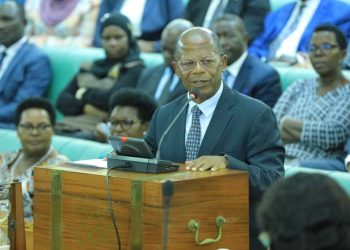Parliament has thrown out the agriculture ministry request for a sh3b supplementary budget to control foot-and mouth disease and tsetse flies that cause nagana (Trypanosomiasis) in cattle.
The request made by the animal industry state minister, Joy Kabatsi, was yesterday rejected on grounds that a huge chunk of the sh3b was meant for administrative costs such as travel and allowances instead of addressing the highlighted problem.
Out of the sh3b supplementary presented yesterday, sh1.2b was indicated as meant for monitoring foot-and-mouth disease (FMD) vaccine and quarantine duration for effective disease control. However, the Butambala County MP, Muwanga Kivumbi, said:
“There should be an end to such kind of requests. You realize that 67% of the money will be going to travel and monitoring while the actual work will take only 22% of the entire budget. So, where is the justification for this money, with just four months to the close of the financial year?”
A breakdown of the request shows that sh240m was meant for travel, sensitization of the study districts and procurement of equipment while sh840m was meant for monthly monitoring of the exercise. Only sh180m was meant for vaccinations.
Kabatsi said 14 districts currently under the FMD quarantine restriction would be selected for the vaccination exercise and at least 10 farmers from each will be sensitized.
“This emergency is a scientific control measure where FMD-prone districts will be identified for vaccination using the trivalent FMD vaccine but I really cannot explain how these figures amounting to sh1.2b came about.”
According to the ministry, Uganda suffers annual FMD outbreaks attributed to uncontrolled livestock movement, lack of vaccines and poor adherence to quarantine measures, which leads to huge losses of income amounting to $8m (about sh29b) annually.
The Government’s expenditure on vaccination of cattle to control FMD ranges between $58,000 (about sh216m) and $1m (about sh3b) annually. The committee chairperson, Amos Lugoloobi (Ntenjeru County), gave the ministry up to tomorrow to present a new supplementary prioritizing vaccination of animals rather than administrative costs.































































